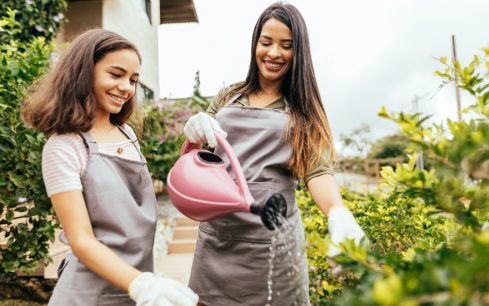“The unselfish effort to bring cheer to others will be the beginning of a happier life for ourselves.” – Helen Keller
We were founded on the principle of neighbor-helping-neighbor, and throughout our more than 125 years, Royal Neighbors members have taken that mission to heart. It seems to be part of our very DNA – resulting in thousands of dollars and volunteer hours given each year to help improve the lives of others in our communities. (Last year, our members dedicated more than 275,000 hours of their time to helping friends, neighbors, loved ones, and even strangers!)
Just like when you throw a rock into a pond, there is a ripple effect from doing good. And many times, this ripple doesn’t just flow outward but ricochets and comes right back toward us. So maybe that old adage, “it’s better to give than to receive,” isn’t so far-fetched.
The benefits of giving go beyond the simple warm fuzzy we feel when we lend a helping hand. Research shows that giving back to others can positively impact not just the receiver but the giver as well.
For example, a 2017 study1 by the Women’s Philanthropy Institute found that “giving makes us happy.” The more a household gives or donates, the higher the household’s life satisfaction. The benefits are physical, too. The Mayo Clinic has identified six key health benefits of volunteering2, including reducing stress, decreasing the risk of depression, and increasing mental and physical wellness through activity. One study indicates that volunteering may even help you live longer! So, dive into that next project, fundraiser, or charity event.
You just may find it’s good for you!
1Women’s Philanthropy Institute. (2017, October). Women Give 17. Indiana University Lilly Family School of Philanthropy. http://hdl.handle.net/1805/14283
2Helping people, changing lives: The 6 health benefits of volunteering. (2017, May 18). Mayo Clinic. https://www.mayoclinichealthsystem.org


